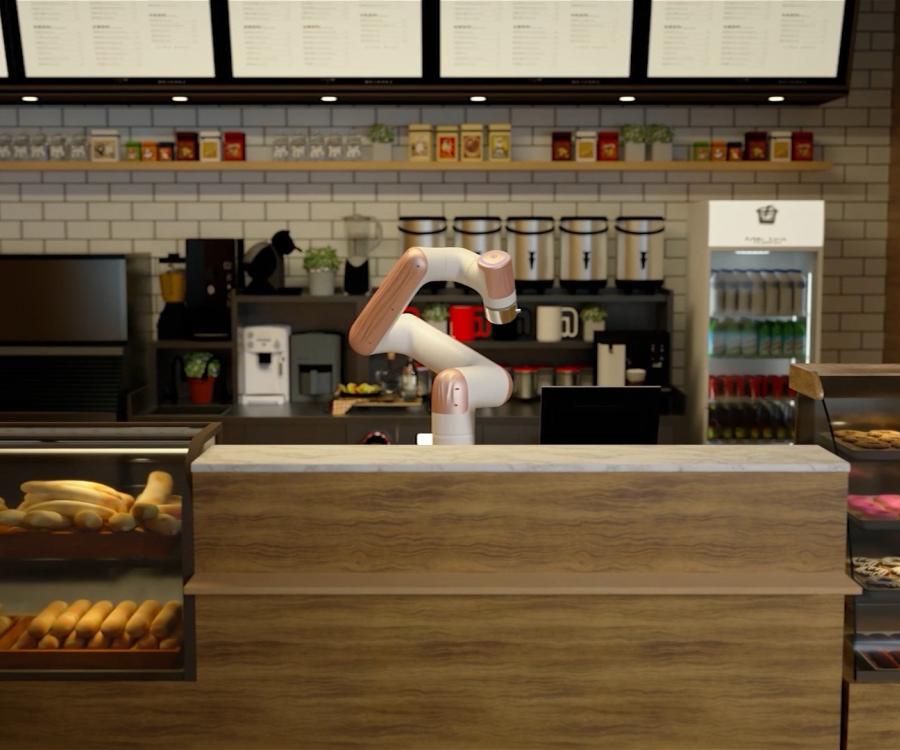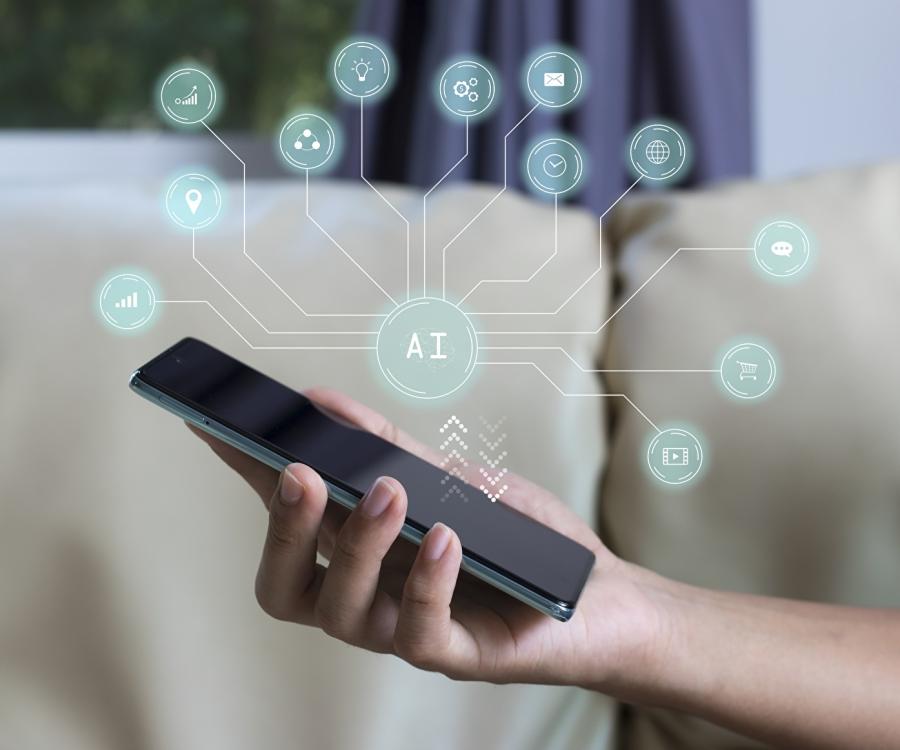Today’s retailers must come up with great ideas to keep up with their online competition. Artificial intelligence (AI) opens up brand-new opportunities in this area. Ralf Reich of Mindtree illustrates why AI is not just a great tool for Internet companies and describes which systems can already be used today.
Customers who visit a store instead of ordering online can reap three benefits at once compared to online retailers: they can look at and try on products on the spot, take them straight home after buying them, and if need be, enjoy face-to-face customer service by talking to a salesperson.
Even in the digitized world, people don’t want to do without this type of direct interaction and shopping experience. Having said that, everyone also knows the advantages that technological progress brought to the online retail business. That’s why retailers can benefit from studying the concepts of Amazon and similar competitors to offer their customers the best experience of both worlds. After all, artificial intelligence, in particular, can just as well be used in stores to benefit both customers and employees.
The intelligent dressing room
Displays in dressing rooms offer a variety of potential uses. They can be used to check whether the preferred clothing item is also available in other sizes or colors. If the desired garment is not available in-store, it can be ordered and directly shipped to the customer’s home. Recently, Intersport in Berlin opened three so-called “Future Stores“, which feature digital dressing rooms in addition to touchscreens and virtual reality.
The dressing room is considered smart if it autonomously makes personalized recommendations for example. Here is one conceivable scenario: a customer authenticates herself with a card or her smartphone. While she is trying on a coat, a matching scarf that fits her taste could be suggested based on purchases she has made in the past.

The shelf knows what it is missing
It is quite annoying for supermarket customers when a product is not on the shelf. Oftentimes, customers also don’t have the time or don’t feel like looking for help from a store associate. Obviously, supermarket employees are likewise not able to constantly monitor all inventory items. A shelf that autonomously keeps track of its contents and alerts employees when inventory is running low would thus be a great help. The concept for a store of the future, which was introduced by T-Systems at EuroShop goes far beyond this idea. In this case, customers are to be identified via their smartphone as soon as they enter the store. They can subsequently receive personalized offers. If the customer takes a product off the shelf, it is automatically added to his/her digital bill as soon as he/she places the credit card under the scanner. This eliminates the need to wait in line at the cash register. Even the ripeness of produce can be checked by using a mini-spectrometer. The different types of data these kinds of smart supermarkets are collecting can be transferred to the cloud and analyzed for different purposes.
Stores without employees?
From a technological perspective, we definitely have the ability to set up a department store without any staff. But is this something we actually want? After all, isn’t it explicitly the face-to-face contact with a (human) sales associate that actually sets traditional shopping apart from online shopping? Consumers value competent advice, especially when it comes to expensive products that tend to need more consultation and customer support. One example of this is a furniture store. If you want to buy a mattress, a sales associate who actually sleeps in a bed every night is clearly better suited for the task and more intuitive than any artificial intelligence system. The purpose of AI in retail should not be to make people redundant. Instead, it should be used to unburden and support its human colleagues, allowing them to spend more time applying the core skill of their profession: customer service.
AI and human skills go hand in hand
There are a variety of AI-driven sales and marketing solutions on the market. The Flooresense system by Mindtree doesn’t even require a big investment since it uses the security surveillance systems that are already in place in almost any store as hardware. The images are analyzed by intelligent, machine learning algorithms. This takes place in the cloud and thus reduces extra infrastructure costs.
Flooresense generates analyzable datasets using the camera images. Retail managers can view the results in a customizable dashboard. This includes information about the number of customers in the store, how much time they spend there and how long they have to wait in the checkout line. This lets the manager decide when another cash register should be opened to prevent customers from having to wait in long lines.
The shopper’s privacy is protected and customers remain 100% anonymous since Flooresense intentionally has not included a facial recognition feature. In light of data protection, this is a real advantage over customer recognition via smartphone tracking.
The system’s unique strength is that the machine learning function studies the customer behavior and is gradually able to use these patterns to make predictions. Combined with other data such as the dwell time at the store, the system can reliably detect whether a customer is purposefully taking targeted items off the shelf or whether he/she is still searching for something and in need of assistance. If the system detects a customer who needs help, Flooresense automatically sends a push notification with the exact location to the smartphone of a nearby sales associate, who will then approach the customer. This allows store associates to spend their time with customers who are in true need of support versus randomly having to address store visitors.
Today’s customer wants the best of both worlds: personalized assistance from the analog sphere and technological support from the digital sphere. If the retail industry manages to achieve this symbiosis, it will continue to offer its customers a first class customer experience in the future.










